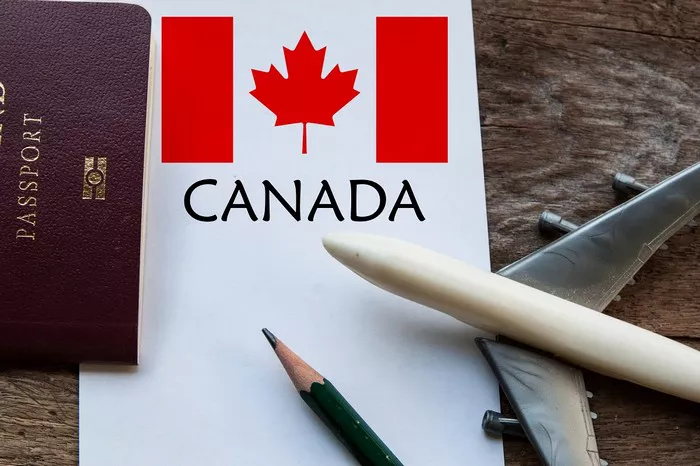Canada, renowned for its welcoming attitude and diverse opportunities, attracts immigrants from all corners of the globe seeking to build a new life. One of the key pathways to establishing a permanent presence in the country is through the Permanent Residency (PR) process. However, understanding the timelines involved in obtaining PR in Canada can be a crucial aspect for prospective immigrants. In this article, we will delve into the intricacies of the PR application process and shed light on the factors that influence the time it takes to achieve this coveted status.
Understanding the PR Process
1. Express Entry System
The Express Entry system stands as the primary avenue for skilled immigrants to acquire PR in Canada. This points-based system considers factors such as age, education, work experience, and language proficiency to determine eligibility. Candidates who score sufficiently high are then entered into the Express Entry pool, from which the Canadian government selects individuals through regular draws.
2. Provincial Nominee Programs (PNPs)
Apart from the federal Express Entry system, Canada’s provinces and territories have their own nomination programs. These Provincial Nominee Programs (PNPs) allow provinces to nominate candidates based on their specific labor market needs and regional requirements. Successful nomination through a PNP provides a significant advantage in the PR application process.
3. Family Sponsorship and other streams
In addition to Express Entry and PNPs, Canada offers PR pathways through family sponsorship, refugee and humanitarian programs, and other specialized streams. Each of these pathways has its own set of requirements and processing times, contributing to the overall diversity of the immigration landscape.
Factors Influencing Processing Times
1. Type of Application
The processing time for PR in Canada varies based on the type of application submitted. Express Entry applications, for example, are generally processed faster than other streams due to the regular draws and efficient point-based system. On the other hand, family sponsorship applications may take longer, as they involve additional considerations such as relationship verification.
2. Completeness of Application
A meticulously prepared and complete application significantly expedites the processing time. Incomplete applications or those with missing documentation may be delayed, as additional information will be requested by immigration authorities. It is crucial for applicants to ensure all required documents are included and meet the specified criteria.
3. Changes in Immigration Policies
Immigration policies and priorities can undergo changes, affecting processing times. Keeping abreast of these changes is crucial for applicants, as alterations in government policies may impact the eligibility criteria or the overall speed of processing.
4. Country of Origin and Residence
The country of origin and current residence of an applicant can also influence processing times. Some countries may have higher demand or face specific immigration challenges, leading to variations in the time it takes for applications to be processed.
5. Language Proficiency and Educational Credentials Assessment
For Express Entry applicants, language proficiency and Educational Credential Assessment (ECA) play a pivotal role. Obtaining required language test results and having educational credentials assessed can sometimes cause delays, emphasizing the importance of starting these processes early in the application journey.
6. Security and Medical Clearances
Security and medical clearances are mandatory steps in the PR application process. Delays in obtaining these clearances, often due to external factors, can extend the overall processing time. Applicants are advised to be proactive in completing these requirements.
Average Processing Times
It is important to note that processing times are subject to change, and the information provided here serves as a general guideline. As of the last available data in 2022, Express Entry applications took an average of 6 to 8 months to process. However, specific circumstances and variations in individual cases may result in shorter or longer processing times.
PNP applications, being province-specific, can have varying processing times. Some provinces may process nominations faster than others, with the overall timeline depending on the specific PNP stream and the province’s immigration policies.
Family sponsorship applications, known for their complexity, may take anywhere from several months to over a year for processing. The timeline is influenced by factors such as the relationship between the sponsor and the sponsored person, as well as the completeness of the application.
Tips for Expedited Processing
While the PR application process involves various factors beyond an applicant’s control, there are steps individuals can take to expedite the process:
1. Ensure Application Accuracy and Completeness
Thoroughly review all application forms and supporting documents before submission. Any errors or omissions can result in delays.
2. Proactive Approach to Language Proficiency and Educational Credentials
Initiate language proficiency tests and Educational Credential Assessment early in the process to avoid last-minute complications.
3. Prompt Response to Requests for Additional Information
In case immigration authorities request additional information or documentation, respond promptly to prevent unnecessary delays.
4. Stay Informed about Policy Changes
Regularly check for updates on immigration policies and guidelines to adapt to any changes that may affect processing times.
5. Utilize Legal Assistance
Engaging the services of an immigration consultant or lawyer can streamline the application process. Professionals with expertise in Canadian immigration laws can navigate complexities and ensure applications meet all requirements.
Conclusion
Obtaining Permanent Residency in Canada is a rewarding journey but requires careful consideration and adherence to guidelines. Understanding the factors influencing processing times and taking proactive steps can contribute to a smoother and more efficient application process. As Canada continues to be a sought-after destination for immigrants, staying informed and prepared is key to realizing the dream of establishing a permanent and prosperous life in the Great White North.


